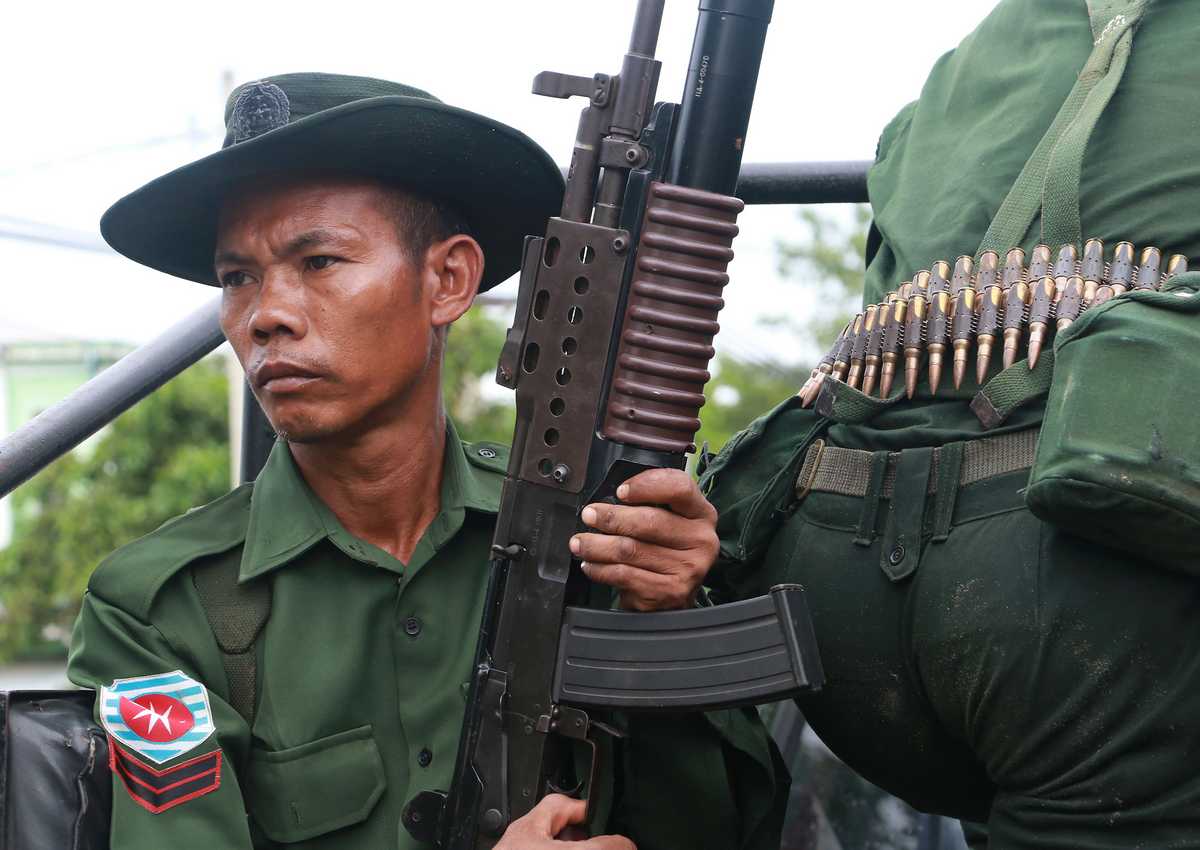YANGON – Eight people died and 36 were arrested in clashes between the Myanmar army and what the government believes are Rohingya Muslim militants in northern Rakhine State, state media said on Sunday, in the largest escalation of the month-old conflict yet.
Skirmishes took place throughout Saturday in villages in the north of Rakhine, leaving one officer and one soldier dead. Six bodies of attackers were recovered in the aftermath, while 36 other people believed to be involved were arrested.
About 60 attackers armed with guns, knives and spears ambushed government troops on Saturday morning, the state-owned Global New Light of Myanmar said. The army returned fire, but at one point asked for army choppers to reinforce because its troops were outnumbered, the paper said.
Soldiers have poured into northern Rakhine, close to the border with Bangladesh, since Oct. 9, after an insurgent group of Rohingyas that the government believes has links to Islamists overseas launched coordinated attacks on several border posts.
The military has blocked access to the area for journalists and aid workers. Residents and human rights advocates have accused security forces of summary executions, rapes and setting fire to homes.
The government and the army have rejected the accusations, saying they were conducting the “clearance operation” in the villages in accordance with the rule of law.
The troops at one point were shot at by about 500 men, state media said. Ye Naing, director of the Ministry of Information, contacted by Reuters on Sunday, said the insurgents were hiding among the villagers and not all of the 500 people were militants.
Security forces recovered a weapon and ammunition similar to arms taken away by the attackers on Oct. 9, state media reported.
The violence in recent weeks is the most serious to hit Rakhine since hundreds were killed in communal clashes in 2012.
Myanmar’s 1.1 million Rohingya Muslims are the majority in northern Rakhine but they are denied citizenship, with many majority Buddhists regarding them as illegal immigrants from neighbouring Bangladesh. They face severe travel restrictions.





























































